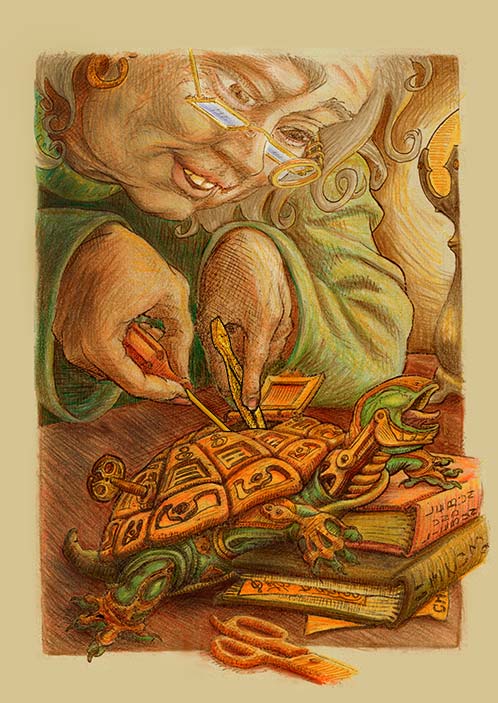
art by Seth Alan Bareiss
Notes on the Game in Progress, Played Almost to a Draw
by Alex Shvartsman
Dedicated to the memory of Roger Zelazny
It was a great match, until the other side cheated.
The planet was perfect for the championship game--lush with biomass, dominated by a single intelligent species spread far and wide across its surface.
Both teams gleefully studied the natives' history in preparation.

We opened in Mesopotamia. At Babel, various peoples were conditioned to speak different tongues. Unable to understand one another, the natives steeled their hearts against the other tribes. As ever, war drove progress.
The Arcturians had conserved their points and let things develop all the way through to the middle ages. Then they had introduced the bubonic plague into the yurts of the Mongols. Genghis Khan died in obscurity as a young man.
It was a subtle but effective move. Without the rise of the Golden Horde there was also no Renaissance, and Europe remained in darkness.
It would cost too many points to counter effectively, so we chose another play. With their new gunpowder weapons and no threat from the Mongols, the Sultanate of Rum had easily defeated the Crusaders and ushered in a thousand-year Caliphate.
The Arcturians tried a few other tricks, but our strategy was solid and it cost few points to stave them off. Under the generous patronage of the Caliphate, mathematics and other sciences flourished as never before. By the 1500s they had colonized the Americas. By the 1800s they had developed nuclear fission. In 1915 the desperate leaders of a failed uprising in Australia found that they had nothing left to lose. With Caliphate troops on the verge of retaking Canberra, they unleashed the hydrogen missiles.
The planet looked even prettier in black-and-red than it did in blue-and-white. We won the first round. The Arcturians admitted defeat, and hit reset.

They adopted a completely different strategy in the second round, spending the bulk of their points on the opening move to go back a million years and introduce bacteria into the ground that slowly and systematically destroyed the planet's oil reserves.



